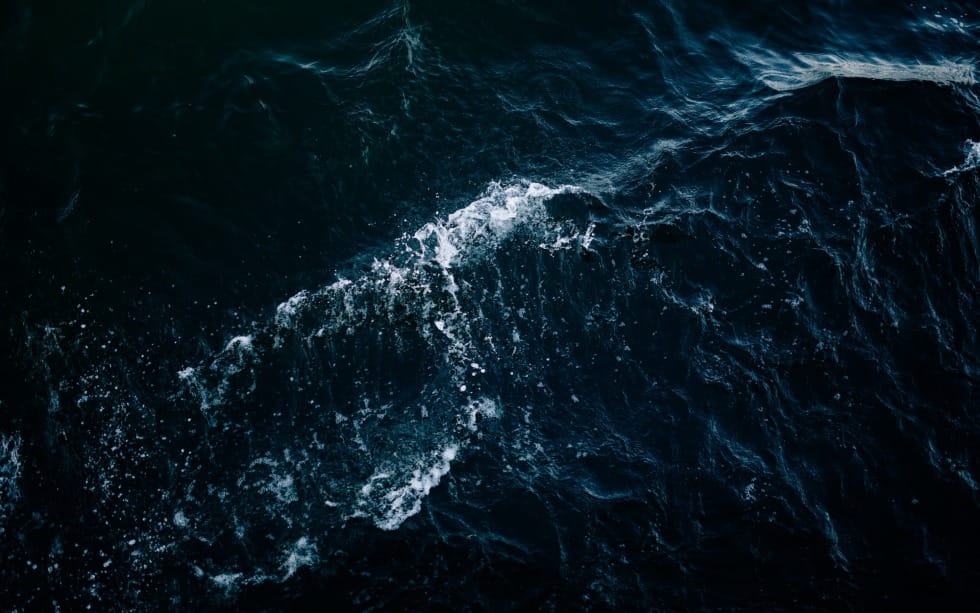The Great Flood and God's Mercy (Genesis 6-9)
Genesis 6–9 reveals God’s response to human evil through the flood, but also His mercy through Noah and a lasting covenant. Does it point to Christ?

Genesis 6-9
Today's Scripture Passage
A Few Thoughts to Consider
Why would God destroy the very earth he created?
The story of The Great Flood in Genesis 6-9 is one of the most challenging passages in all of Scripture. Here, we have the same God who created a world he called “good,” now unleashing total destruction.
First, it should be noted that there are lots of questions that naturally surround this account. Was this a local or global flood? How did Noah get all the animals on the ark? How would Noah have had the capacity to construct such a large boat?
Much has been written about these topics, but here is what we know. For starters, despite Noah’s failures as a person, he was viewed as a remarkable figure. Derek Kidner notes, “In a corrupt world Noah emerges not merely as the best of a bad generation, but as a remarkably complete man of God.”[1]
Second, completing the ark was a fantastic feat of engineering and faith. The approximate dimensions of the ark are 450 feet in length, 75 feet wide, and 45 feet deep. We’re not exactly sure how long it took Noah to build the ark, although many estimate a range of 50 to 75 years. This required decades of faithful persistence in the face of blatant ridicule.
Third, the flood was truly devastating. According to John Walton,
The Hebrew word for Noah’s flood, used twelve times in Genesis 6–11, is mabbul. Outside of this section it occurs only once (Ps. 29:10). The word is similar to the Akkadian word for the cosmic deluge, abubu. In Akkadian it refers to a devastating flood of cosmic proportions that is seen as a destructive weapon of the gods. Just as Psalm 29:10 depicts Yahweh as enthroned on the flood, Akkadian texts depict gods such as Nergal as “king of the battle, lord of strength and might, lord of the Deluge,” and Ninurta as the “exalted lord who rides upon the Deluge.”[2]
Gordon Wenham echoes this sentiment and notes, “The waters do not merely multiply greatly; they triumph.”[3] The Hebrew word Gavar, translated as “prevailed” in the ESV, appears four times in Genesis 7:18, 19, 20, and 24. It “is a military word for succeeding in battle (e.g., Exod 17:11).”[4] Thus, the imagery is God unleashing an army of water against those created in his image—a sobering picture.
Fourth, the devastation ends with a promise. After Noah and his family exit the boat, God circles back to the creation narrative language and tells Noah in Genesis 9:1, “Be fruitful and multiply and fill the earth.” As Christopher Wright notes, “The language with which God addresses Noah at the end of the flood clearly echoes Genesis 1.”[5] And with this command, God establishes a covenant with Noah and promises never to destroy the earth through water again. Willem VanGemeren notes, “The Noahic covenant is God’s gracious commitment to preserve creation till the final judgement.”[6]were
A Meditation to PRAY
Praise | Thank you for being my ark of safety. When I place my complete trust in you, I am eternally secure. Nothing can harm me.
Release | Because of the security you offer, I rest in you. I do not need to fear outside forces against me.
Ask | Help me see the world through your eyes, not mine. Give me compassion for the lost and hurting around me.
Yield | I surrender my desire for earthly things to you. Even if all were stripped away, I trust you to take care of me.
A Challenge to Act Like Christ
The story of Noah directs our eyes back to Adam and forward to Christ.
Willem VanGemeren offers this helpful perspective when he writes,
When the flood wiped out the rest of humanity, Noah became a second Adam figure, bringing comfort to humanity by being an instrument of the renewal of God’s blessing (Gen. 9:1,7). Noah also echoed Adam’s role as recipient of a covenant that God made with him, his descendants, and with all of life (9:8-17). Jesus compared the day of his second coming to the days of Noah: people lived their lives apart from God, foolishly unaware of his gracious offer of life (Luke 17:26).[7]
Today, we live in a world that will one day perish. And our only ark of safety is placing our complete trust in Jesus Christ. He is the only hope for the storms of life we face. And as Genesis 8:1 indicates, God remembers those who trust Him.
*Unless you specify otherwise, comments and questions you ask may be featured in upcoming podcast episodes.
[1] Derek Kidner, Tyndale Commentary
[2] John Walton, NIVAC
[3] Gordon Wenham, Word Biblical Commentary
[4] Gordon Wenham, Word Biblical Commentary
[5] Wright, Christopher J. H.. The Mission of God: Unlocking the Bible's Grand Narrative. InterVarsity Press, 2013. 327.
[6] Willem VanGemeren, ESV Gospel Transformation Bible, 13
[7] Willem VanGemeren, ESV Gospel Transformation Bible, 12.





